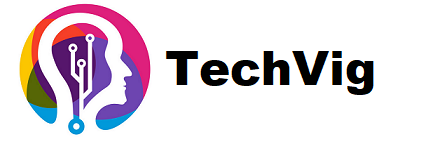How to Keep Your Information Safe Online?
Since the social media boom of 2007, billions of people worldwide log into their social media accounts every day.
There is also an ever-growing number of people who make a living on social networking: YouTubers, TikTokers, Twitter, and Facebook influencers.
It logically follows that every Internet user leaves a long trail of personal information, which can fall into the hands of con artists and identity thieves. Luckily, you can protect your online data in several easy steps. Here is how.
6 Easy Steps to Safe keep Your Online Data
Follow the six online security tips below to enjoy risk-free social networking and Internet surfing.
1. Set up strong passwords for your online accounts
A strong password is at least eight symbols long and contains a combination of upper- and lower-case letters and numbers.
Ideally, it should not contain bits of personal data such as, for example, your name spelled backward or your mom’s birthday.
The more popular you become, the stronger your passwords should be
The more popular a social media account grows, the stronger the password that protects it should be.
Famous business people, politicians, and celebrities have hired social account managers, and one of their responsibilities is to keep their clients’ verified accounts impervious to hackers.
If you use social media platforms for work, lock your accounts with randomly generated passwords and store them on a special offline device.
Set up two-factor authentication
Wherever possible, set up two-factor authentication for your online accounts. Most email services and social platforms already provide this additional security layer.
When you enter your password, you will usually receive a 6-digit code on your phone to confirm your identity.
2. Be careful what you share online
Think twice before you share anything online. Facebook makes your content available to friends of your friends, no matter if you know them or not.
The fact that you nonstop share photos of every meal you have and every place you go on Facebook and Instagram does not make you an influencer.
Every piece of information you post or share must serve a particular purpose without revealing sensitive personal details that con artists can use to search for people online.
3. Protect your banking details
Most people pay their bills or transfer money online without even thinking of how risky it may be. Banks and payment operators go to great lengths to make their websites super secure, but there are things you can do as well.
- Update your long and strong password regularly.
- Never log in from a public network or the office.
- Log in from devices that have reliable antivirus software.
- Always type in the link to your bank’s website.
4. Beware of free Wi-Fi
One should be careful and reasonably suspicious of everything they get for free, including Wi-Fi. If you have to use a free public network, always log in through a VPN.
Even a basic free VPN service can hide your browsing data from online predators. It would be best to avoid shopping and banking from public networks.
5. Avoid sites with expired SSL certificates
SSL provides secure data transfers between a website and its visitors. SSL secures HTTP connections so that third parties cannot intercept messages between a server and its clients.
Encrypted connections scramble the information flow between the server and your machine until your browser decrypts it with the other part of the key.
How to tell if a website uses SSL?
The easiest way is to look at the beginning of the address bar and check if there’s a padlock in place.
If there is one, the SSL certificate is valid. If there’s a red line across the padlock, the certificate has expired, and your connection to the site is not encrypted.
6. Do not open suspicious emails
If you receive an email saying your PayPal account has been restricted, don’t open it. Go to PayPal and check it yourself.
Even if you open one, take a look at the sender’s email address. You’ll quickly see it has nothing to do with PayPal.
Hackers rely on your naivety to steal your personal information. If you don’t let them into your computer, they can’t do anything.
Conclusion
Every Internet user is responsible for their online safety. The six steps described above should encourage readers to brush up on their online footprint and reconsider what they share on social platforms.
Last but not least, parents should control how much time their children spend online and which sites they visit.






